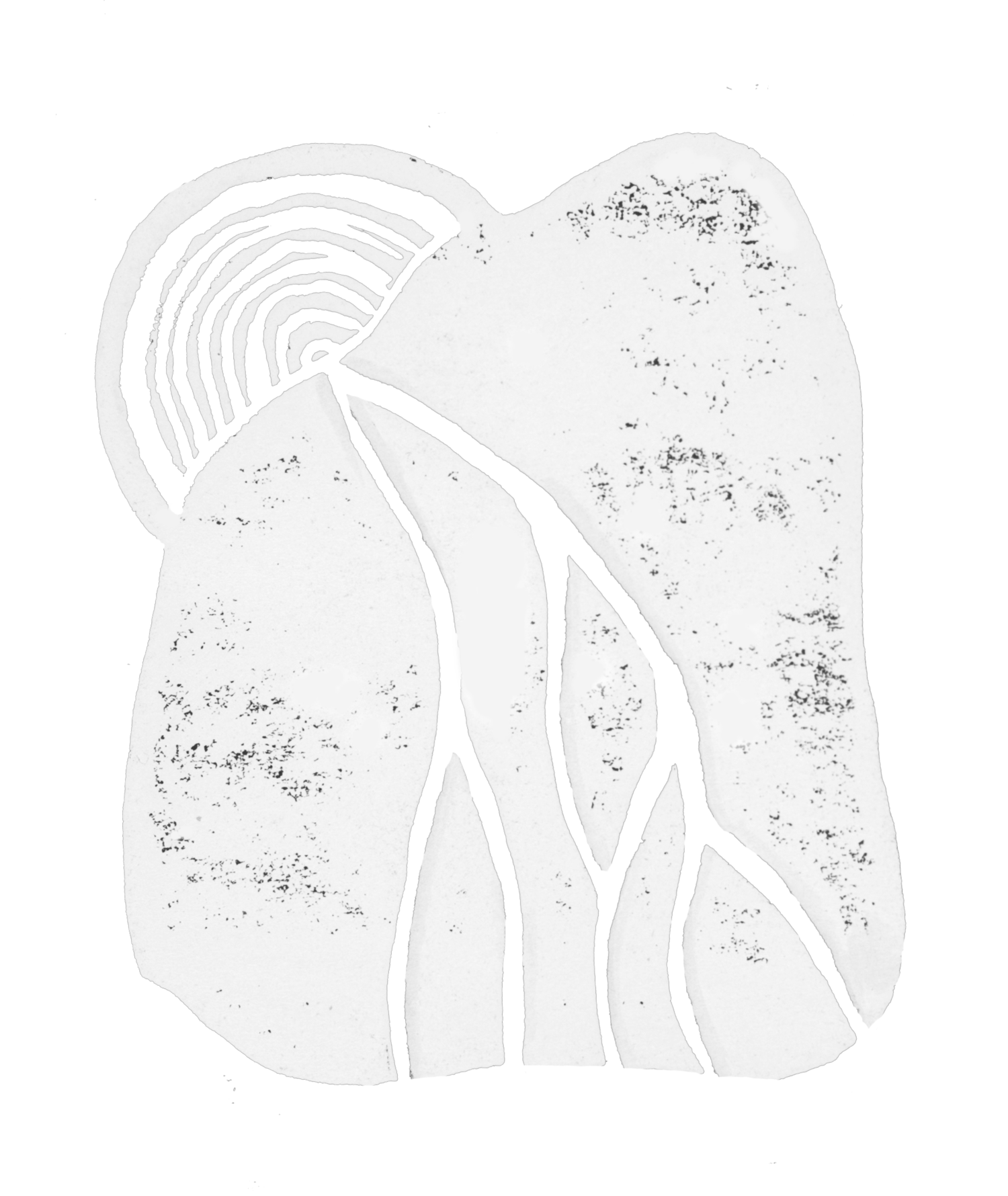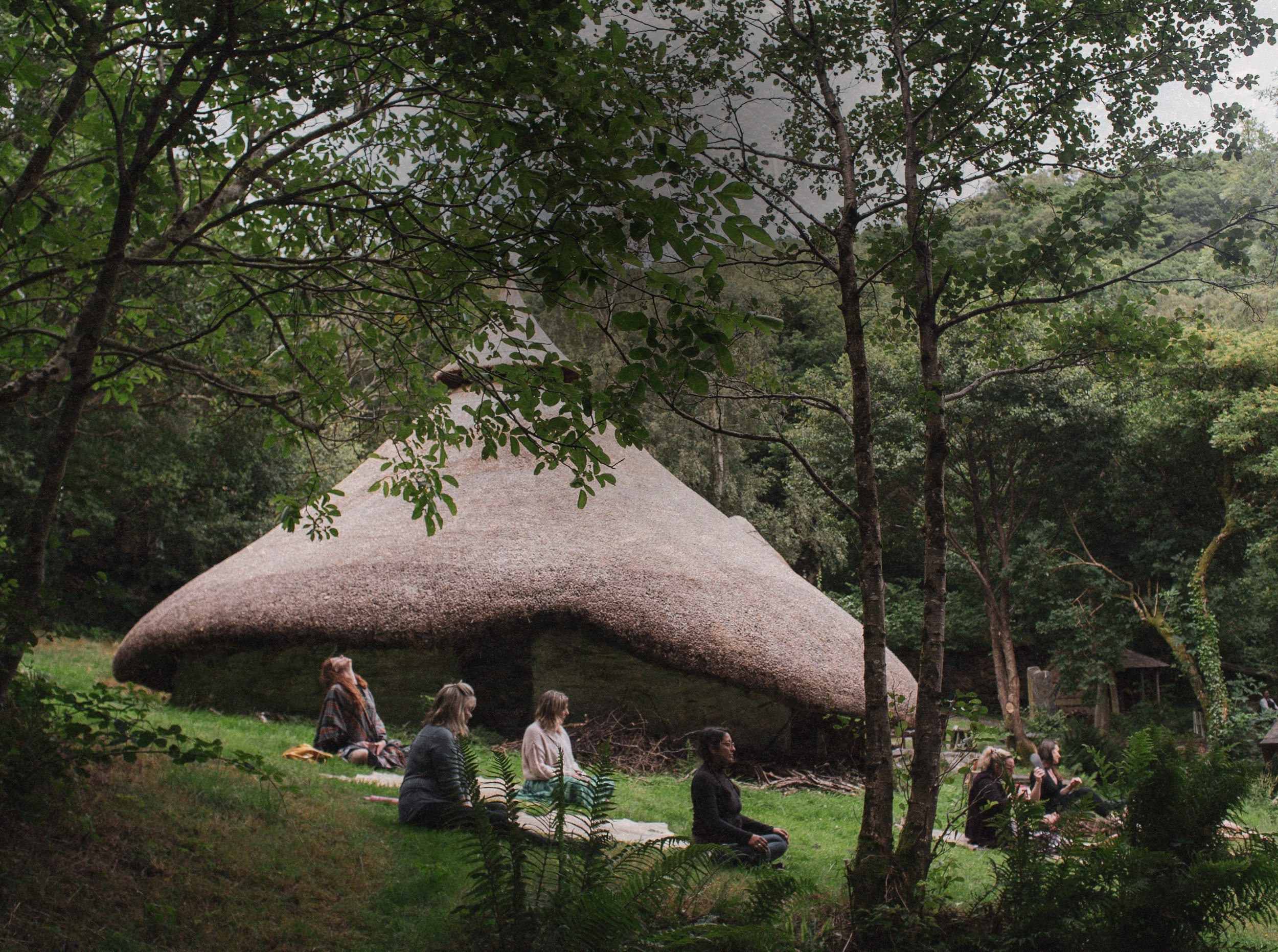
column
Rooted Resilience: Why Practice Deep Ecology?
Words by BEN STOPFORD
Gardener, Gatherer + Facilitator of Deep Ecology + Bioregionalism
Founder of Conscious Roots + co-founder of Kingly Stag
Deracinated, uprooted, displaced, exiled, lost. These are common underlying experiences of the modern human.
Subtle but pervasive, a sense of lacking rootedness feels inevitable in a society with such ready access to freedom of movement and so little authentic relationship to wilder nature. The benefits of the fluid movement available to many in the Global North are many; the exploration of different places, the ability to work anywhere and even the choice of homeland all have a taste of liberation to them, but is there a hidden cost? What if these freedoms leave us with a certain lostness? A niggling feeling that something isn’t quite right? A disconnection from the human and more-than-human communities we inhabit?
I believe a little known philosophy might hold some profound answers that may help us to re-root back into the lands in which we live…
Deep Ecology, a term coined by Norwegian Eco-Philosopher Arne Naess in 1973*, which tapped into a growing movement away from anthropocentric environmentalism (management of nature framed as resources for humans) initiated, as many would say, by Rachel Carson’s seminal work ‘Silent Spring’ (1962). From a Deep Ecological perspective, the biosphere as a whole, including all of its unique individual, interconnected life forms have a right to flourishing lives, independent of their benefit or relationship to humans. This worldview is not a casting aside of human progress, far from it, but a holistic (whole-earth) view that understands the Earth as a complex organism that requires systems health for the benefit of all life.
So how can a little known philosophy be of benefit to the human search for connection, meaning and belonging?
grow with us in community: explore our online courses in deep ecology, animistic philosophy + bioregionalism
Some plants have shallow roots, spreading hairlike systems that spring up quickly and live their lives this way. They are integral to healthy ecosystems, no-less a part of them than the deep rooted or long lived leafed ones. Common plants such as plantain and chickweed serve their systems in a multitude of ways, securing soils quickly, thriving whilst benefiting the land on which they live, ensuring vital soils do not get washed down rivers. Some, such as dock or dandelion, tap roots many feet below, drawing up hard-to-reach nutrients from the depths. One is not of more value than the other. They all have roles within a wider ecosystem and they all have lives in themselves. What of the human equivalents? The transitory workers, immigrants, explorers, travellers, seasonal workers or refugees? Their roles in the ecosystems they find themselves can act as nourishment as giving to, not consuming of, culture and experience. When one arrives to a new land, it is possible to land well, to root into the ecosystem and flourish whilst serving that system's vital needs. Plants do this often.
We can belong, wherever we are and no matter how long, if when we land we land rooted.
Those who stay still. The trees and long-lived perennials. These are the humans we traditionally understand to be rooted, having been passed ancestral knowledge of land and culture over generations. Yet, what if we forget to disseminate this wisdom? What if we have forgotten it? Being still does not guarantee depth of belonging. Rootedness is something that is actively cultivated and we are in desperate need of keepers of land wisdom.
In Deep Ecology, folk may ask themselves or their community a series of simple questions designed to determine rootedness. Awareness of one's present depth of rootedness can draw attention to areas for a deepening sense of belonging, a profound understanding of purpose and a settled feeling of inhabiting the right environment. What happens to a person as they walk their local river from source to sea? As they observe the moon cycles? As they gather with neighbours to share food and story
The emergent insight one finds oneself after exploring deep ecological questions is the ecological-niche. We all have one; it is the ultimate expression of us-ness. The unique role I play in my specific ecosystem.
We know this role by exploring place and community; what does this land and its inhabitants yearn for? What calls me and makes my soul weep or sing? Perhaps river pollution brings me to tears. Perhaps the need for healthy food calls me. Perhaps music makes binds my community in an a timeless remembering. These are signposts letting me know I am heading in the right direction, both for me and for the wider system that holds me. Little clues that we might miss if we move too quickly or forget to listen (headphones always in, curtains drawn across morning light, driving from door to door). Healthy systems are made up of healthy organisms. Healthy organisms are found in healthy systems. It’s a circular economy.
learn more about our ceremonial gatherings + psychedelic retreats
In mens work we slowly tune into the subtleties of each man with a concept known as ‘listening with the heart’. It involves deep listening, taking on what is being told and not planning our response or comparing our own experiences. This careful listening allows us to note hints of gold in a man's tone or body. And hints of shadow. All is welcome in the deeper knowing. If I word catches, we may be onto something. We may have struck gold but must dig, carve and polish for it to become available, visible. Deep Ecology is like this for our ecological-niche and our belonging.
By listening, watching, participating in the goings-on of our biosphere with our full body, our role will become clear. Each one of us has a role to play in what Joanna Macy calls this Great Turning; the movement toward a world where belonging is the birthright of every human, plant, animal, rock and river.
And the ramifications of embracing Deep Ecology as a guide to living?
The word ramifications comes from the root Latin ‘ramifier’. To branch out. Ramifications are the branches of our actions (or inaction). In Spanish, branches are called ‘ramas’. Branches reach out in all directions, touching the sky and the kin next door, who’s ramifications touch ours and those near them.
This is grass-roots work. Politics for the people, by the plants, for the plants by the people. It is a human network of roots, mycelium and bacteria all acting on behalf of the thriving of all life.
We already speak in ecosystems.
So, I ask you, what is your ecological-niche? Most of us have no clue intellectually, but already know somewhere deep down that we yearn for a sense of belonging. What it is that makes us sing? What it is that calls us? Oftentimes we mistake our niche for our career, but what of purpose beyond pay? Head outside and listen with your heart. Tune into your own subtleties and those of your landscape’s community (including the human). When you feel a tingle, a teardrop, a flow or sense of peace, keep moving in that direction.
This is not the work of heroines or heroes, it is the work of roots, branches, mycelium, moss. It is our work also.
*Naess, Arne (January 1973). "The shallow and the deep, long‐range
ecology movement. A summary". Inquiry. 16 (1–4): 95–100.
You can listen to Ben share on similar themes on the Rooted Healing podcast in our episode ‘Bioregional Life-ways’.
Join our online slow-study course
deepen your roots
cultivate profound belonging + become a bioregional guardian
continue reading our journal
-

Catalysing Connection: Psilocybin and Biophilia
Of the various psychedelics, psilocybin may have a particular propensity towards kindling a sense of kinship with nature.
-

Rooted Resilience: Why Practice Deep Ecology?
Each one of us has a role to play in the movement toward a world where belonging is the birthright of every human, plant, animal, rock and river.
-

The Past, Present and Future of 'Magic Mushrooms'
Today, the once-unbroken lineages of traditional knowledge regarding the 15+ psilocybin fungus species and their ceremonial uses have significantly diminished.




